Editor's note: On the 10th anniversary of the Belt and Road Initiative (BRI), let's take a look at the railways in BRI partner countries and explore the projects as well as the local sights and sounds. In this article of the "Railways Along the Belt and Road" series, we focus on how mega-infrastructure projects like airports, sea ports and light-rail are helping realize Nigeria's dream of making its 219 million people more prosperous.
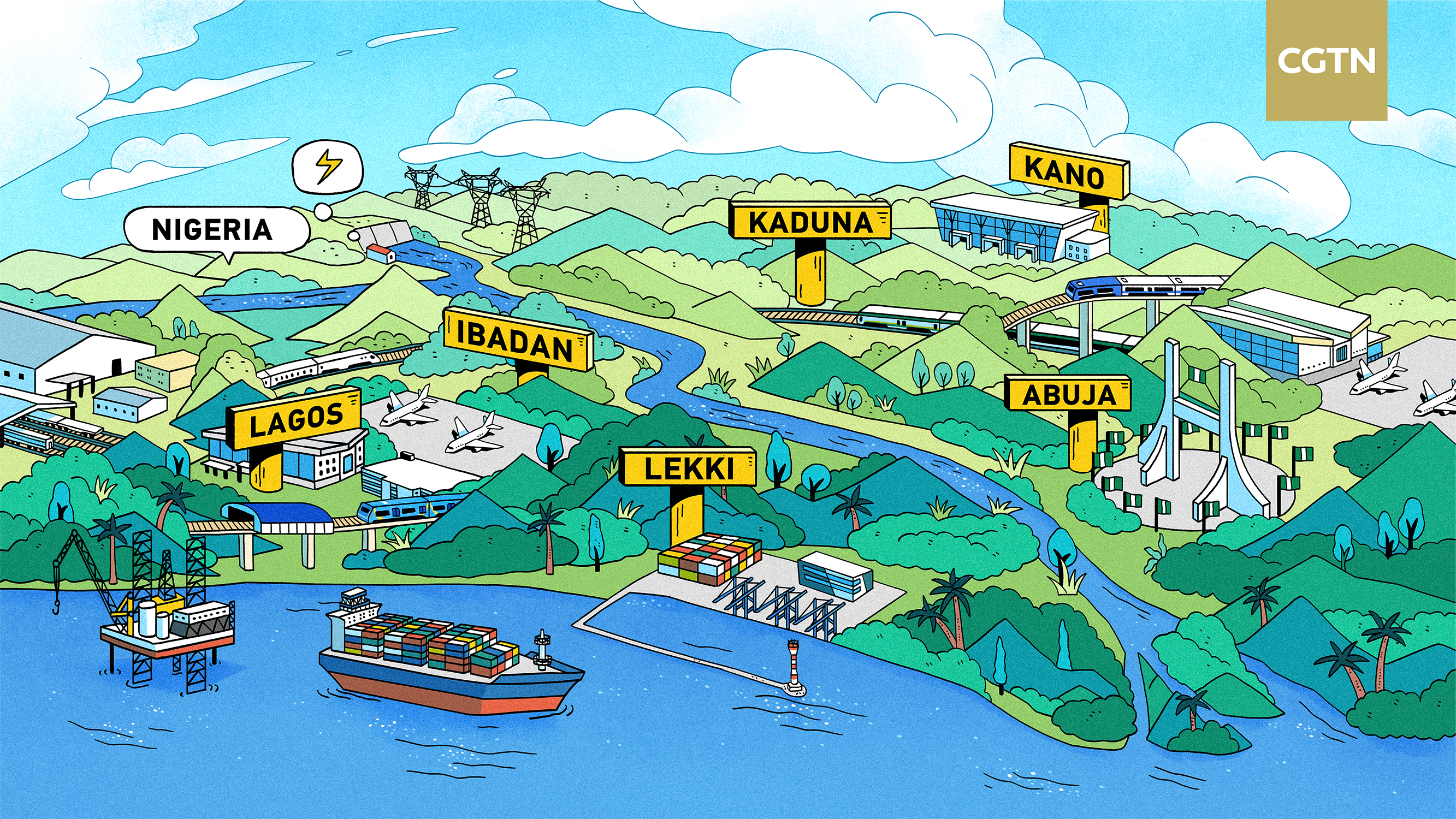
Railways Along the Belt and Road, Mega-infrastructure projects like airports, sea ports and light-rail are helping realize Nigeria's dream of making its 219 million people more prosperous. Shen Shiwei, Huang Ruiqi/CGTN
Railways Along the Belt and Road, Mega-infrastructure projects like airports, sea ports and light-rail are helping realize Nigeria's dream of making its 219 million people more prosperous. Shen Shiwei, Huang Ruiqi/CGTN
Nigeria's railway system has been in existence for over 100 years. But following years of neglect and mismanagement, the creaking service began to fall apart. For years, it was not an easy journey to travel from Nigeria's northern business center of Kaduna to the capital city of Abuja.
Nigeria, Africa's largest economy, has long aspired to modernize its aging railway lines to create economic corridors across the country and pursue transformative megaprojects.
And now, everything is changing.
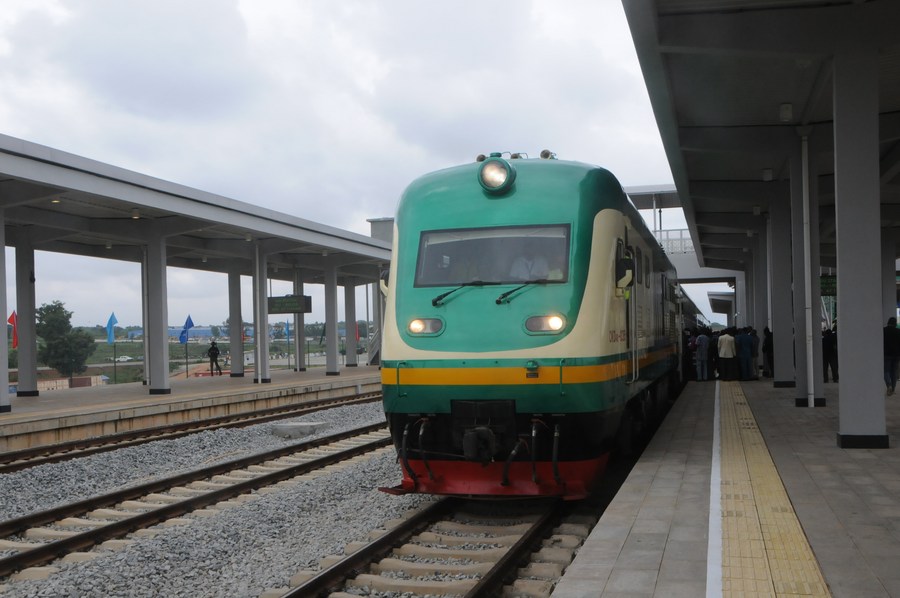
The Chinese company CCECC built the Abuja-Kaduna Railway, part of Nigeria's country-wide rail modernization programme. With nine stations and a design speed of 150 km per hour, the railway line covers a distance of 186.5 kilometers. /Xinhua
The Chinese company CCECC built the Abuja-Kaduna Railway, part of Nigeria's country-wide rail modernization programme. With nine stations and a design speed of 150 km per hour, the railway line covers a distance of 186.5 kilometers. /Xinhua
In recent years, traveling across the most populous country in Africa by newly upgraded railways has become increasingly easy, as mega-infrastructure projects built with technology and financial support from China under the Belt and Road Initiative have improved people's lives and pushed forward the country's economic diversification.
In 2016, Nigeria inaugurated the Abuja-Kaduna Railway, the country's first modernized railway and the first railway in Africa built based on Chinese technical standards. A smooth and safe journey between the two cities on the 187-km rail link constructed by China Civil and Engineering Company (CCECC) only takes one hour.
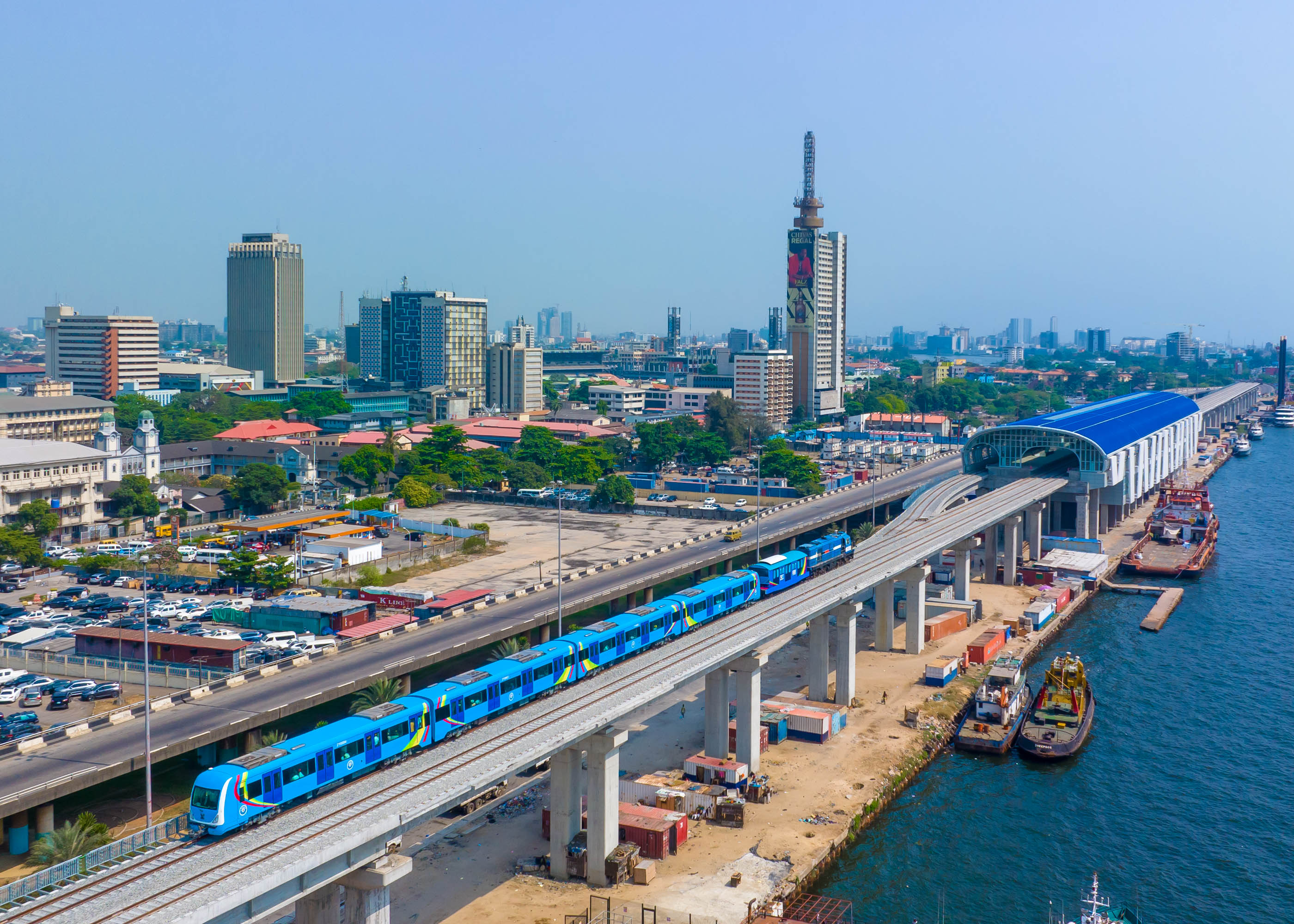
West Africa's first light rail network, built by a Chinese company CCECC, opens in Lagos, Nigeria. December 21, 2022. /CGTN
West Africa's first light rail network, built by a Chinese company CCECC, opens in Lagos, Nigeria. December 21, 2022. /CGTN
Upgraded railways in Nigeria have greatly reduce traffic congestion on intercity roads and at local ports. The Lagos-Ibadan Railway opened in 2021, making travel between Nigeria's largest port city to one of the country's most important industrial cities markedly easier.
Lagos, Nigeria's largest metropolis with over 15 million residents, is now home to West Africa's first-ever light rail network. Built by a Chinese company, the light rail line is designed to reduced traffic congestion and air pollution, as well as improve the lives of locals. The economic impact could be significant, as Lagos accounted for 26.7 percent of Nigeria's total GDP and over 50 percent of Nigerian non-oil industrial capacity is in the city.
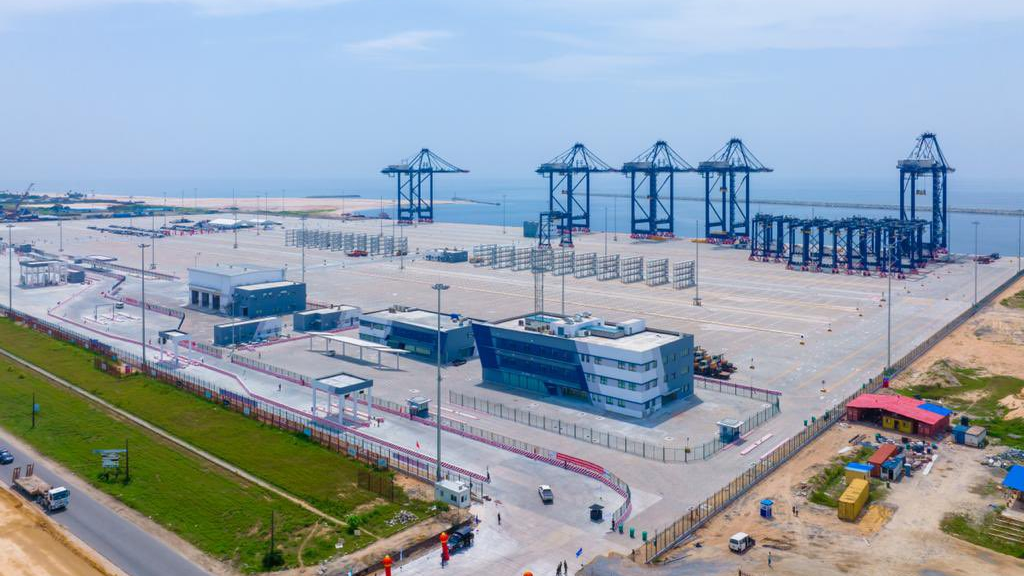
West Africa's deepest sea port, built by China Harbor Engineering Company Ltd (CHEC), opens in Lagos, Nigeria. /CGTN
West Africa's deepest sea port, built by China Harbor Engineering Company Ltd (CHEC), opens in Lagos, Nigeria. /CGTN
In recent years, more landmark projects are flourishing in this economic hub. West Africa's deepest sea port, built by a Chinese company named China Harbor Engineering Company Ltd (CHEC), opened in Lagos, and an international terminal at Murtala Muhammed International Airport was upgraded by Chinese companies.
With the capacity to handle 1.2 million standard containers annually, the Lekki port will greatly ease congestion at Nigeria's ports and increase the country's container handling capacity by up to 80 percent, according to China Harbor Engineering Company Ltd (CHEC), the port's builder.
In addition, the Lekki port is embedded in the Lekki Free Trade Zone which offers tax and other incentives, as well as reliable and modern infrastructure to lower the cost of doing business and generate more benefits.
If a modernized national railway network and maritime logistics center are essential to Nigeria, a stable energy supply is equally vital for the development of a country with a fast-growing population.
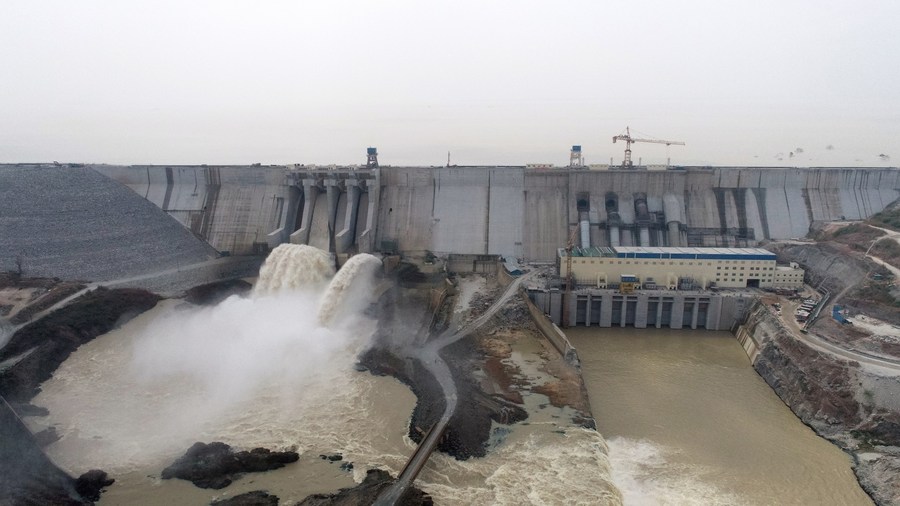
Chinese companies built the Zungeru Hydroelectric Power Station, which has met around 10 percent of Nigeria's electricity needs with clean and reliable energy. /Xinhua
Chinese companies built the Zungeru Hydroelectric Power Station, which has met around 10 percent of Nigeria's electricity needs with clean and reliable energy. /Xinhua
Nigeria's limited power generation capacity and outdated grid system have been overwhelmed for years.
In 1982, the Nigerian government laid out plans to build the Zungeru Hydroelectric Power Project. With an installed capacity of 700 MW, it had the potential to ease the country's power shortage problem. But construction work stalled and foreign companies were reluctant to take on the project, mainly due to lack of funds.
Thirty-one years later, in 2013, China and Nigeria signed an agreement worth approximately $1.293 billion to build the megaproject. Chinese companies won the contract and the Exim Bank of China provided a loan facility with preferential conditions. After nine years of construction, the massive infrastructure project was completed, and the hydropower plant started to provide clean energy to the Nigerian people and aid industrial development.
From railways to ports, infrastructure megaprojects are injecting growth momentum not only into Nigeria, but the whole of Africa. And now, China and Nigeria are eyeing further cooperation on the African Union-led Great Green Wall Initiative, which aims to combat desertification in the country's northern area of Kano and other states which border the Sahara Desert, the world's largest.